Related Blogs
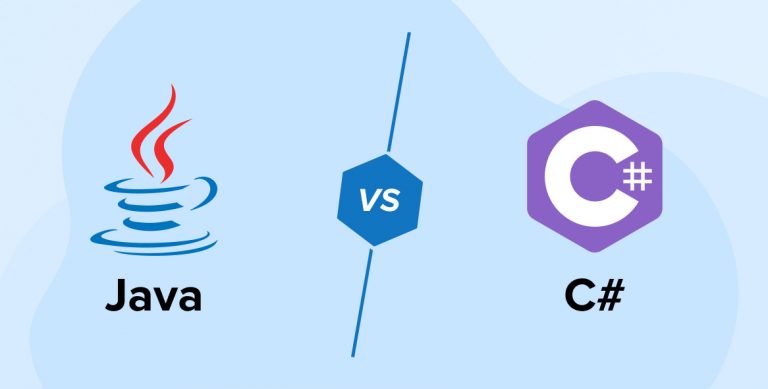
When it comes to creating a software solution that can be beneficial for any type of business organization, both Java and C# are the best choices available in the market. These back-end development languages can be used for creating windows-client apps, cloud apps, and more. These languages come with a lot of similarities but despite them, they aren’t the same. Therefore, when it comes to hiring developers for your project or when the software development company has to decide which language to work on for a particular client project, the best thing to do is understand the key differences between Java vs C#.
JAVA is object oriented programming language, while C# is object-oriented, component-oriented, functional, and strongly typed programming language. Also, JAVA uses JRE (Java Runtime Environment), whereas C# uses CLR (Common Language Runtime). To help you further, here we will understand both of these languages and then go through the difference between Java vs C#.
1. Java
Java is one of the most popular programming languages that was developed at Sun Microsystems by James Gosling in 1995. It was later taken into possession by the Oracle Corporation in the year 2009. Java is known as a high-level programming language that makes it very easy for developers to write the code, compile it, and debug the program. Being a Java development company, our developers find this language as a user-friendly programming language that comes with a class-based object-oriented approach that is helpful in implementing the principle of “write the code once and use anywhere”. Java applications that are written once but used to develop other programs are compiled to bytecode and they can run on machines that are JVM (Java virtual machine)-supported.
JDK (Java Development Kit) holds 14.8k stars, 309 watching, and 4.2K forks on GitHub.
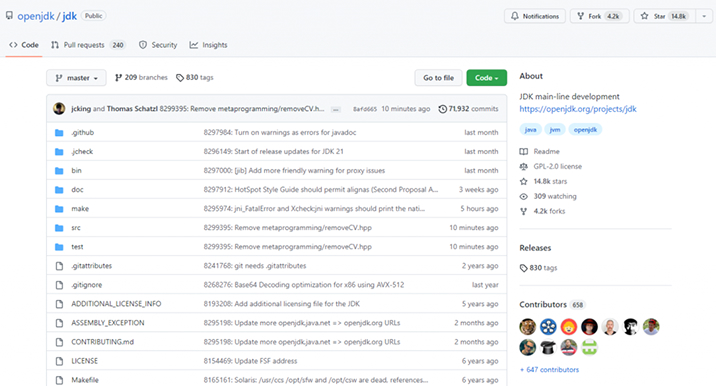
1.1 Features of Java
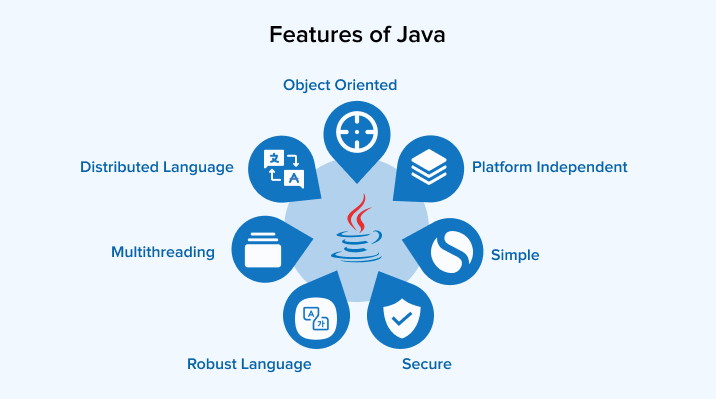
Some of the major features of the Java programming language are –
Object Oriented Language
Object-oriented programming is one of the most popular ways of organizing programs. The reason behind it is that this concept collects objects and each of the objects represents an instance of a class. The four main concepts that object-oriented programming has to offer are – Abstraction, Encapsulation, Inheritance, and Polymorphism.
Platform-Independent Language
When it comes to Java programming language, the compiler(javac) has the capability to convert source code (.java file) to the byte code(.class file). As discussed before, JVM executes the bytecode that is developed by the compiler. This byte code can run on platforms like Mac OS, Windows, Linux, etc. Basically, if the Java program is compiled on Windows, it can run on Linux or Mac OS and vice-versa. Though each operating system comes with a different JVM, the output created by them after the bytecode’s execution is the same in all operating systems. This is the reason Java is known as a platform-independent language.
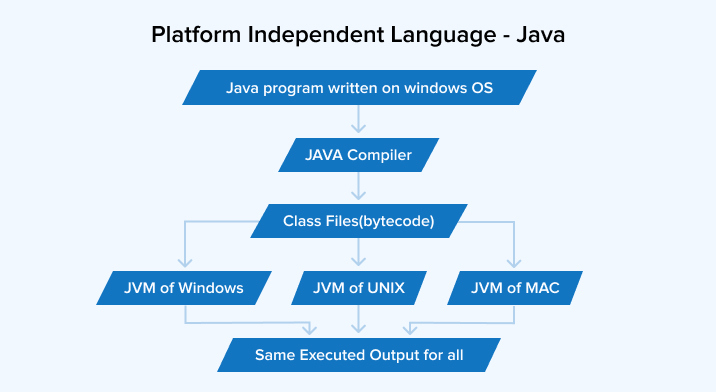
Simple
Java is known as a very simple programming language and the reason behind it is that Java doesn’t come with complex features like multiple inheritances, operator overloading, explicit memory allocation, and pointers.
Secure
In Java, there are no pointers available which mean the web development team cannot access out-of-bound arrays and if the developers try to do that, they will receive an ArrayIndexOutOfBoundsException error in java.
Example:
<template> class HelloWorld { public static void main(String[] args) { int a[] = new int [2]; a[0] = 5; System.out.println(a[3]); } } |
<template> class HelloWorld { public static void main(String[] args) { int a[] = new int [2]; a[0] = 5; System.out.println(a[3]); } }
Output:

This is the reason why it is impossible in Java to have security flaws like buffer overflow or stack corruption. But still Java recommends using secure coding guidelines to give an extra layer of security.
Secure Coding Guidelines for #Java SE #Java9https://t.co/qx1AfnNlcB pic.twitter.com/YbN8zLt6bB
— Java (@java) October 30, 2017
Robust Language
Java is definitely a robust or reliable programming language and this is because of the way it has been developed. It emphasizes a lot on early checking for possible errors which is the main reason why the java compiler can easily detect errors that are not easy to find. One of the main features of the Java platform is that it is robust when it comes to garbage collection, memory allocation, and exception handling. Even Java Guides mentioned a few Java exception handling best practices in their recent tweet.
Java Exception Handling Best Practices:#java #bestpractices #javaguides pic.twitter.com/eay1WDP6hs
— Java Guides (@GuidesJava) June 11, 2022
Distributed
With the use of Java programming language, the developers can easily create distributed apps as Java comes with EJB(Enterprise Java Beans) and RMI(Remote Method Invocation) which are used for developing distributed applications. Basically, Java can program distributed apps that can run on more than one system that is connected to each other via the internet.
Multithreading
Java supports the multithreading concept. This approach is one of the best features of the Java programming language and it allows concurrent execution of multiple parts of a program to utilize the CPU at its maximum level.
1.2 Pros and Cons of Java
There are several advantages and disadvantages to using Java programming language, including the following:
Advantages of Java
- Allows the app development of reusable code and standard programs.
- Offers a wide range of skilled developers
- Provides detailed documentation
- Easy to navigate libraries
- High-performance and excellent apps
- Offers a multi-threaded environment
- A huge array of third-party libraries
Disadvantages of Java
- The JIT compiler in Java makes the app slow.
- It doesn’t offer support for low-level programming.
- Java demands high processing and memory requirements.
2. C#
C# is a very popular, modern, general-purpose, and object-oriented and component oriented programming language. It is pronounced as C sharp. This language was created by Microsoft led by Anders Hejlsberg and his team. C# programming language was approved by International Standards Organization (ISO) and European Computer Manufacturers Association (ECMA). It is a language that is a lot more similar to Java syntactically and is very easy for developers who have basic knowledge of languages like C, C++, or Java.
C# holds 9.5k stars, 689 watching, and 970 forks on GitHub.
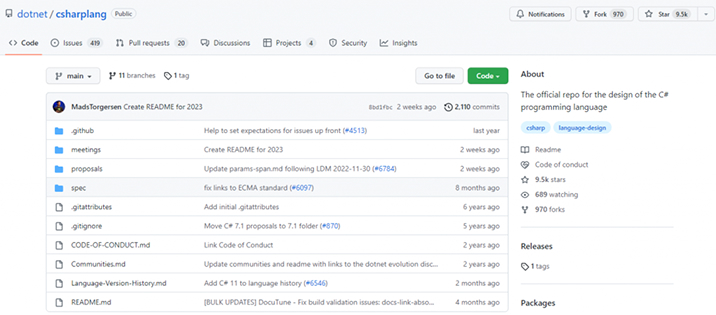
2.1 Features of C#
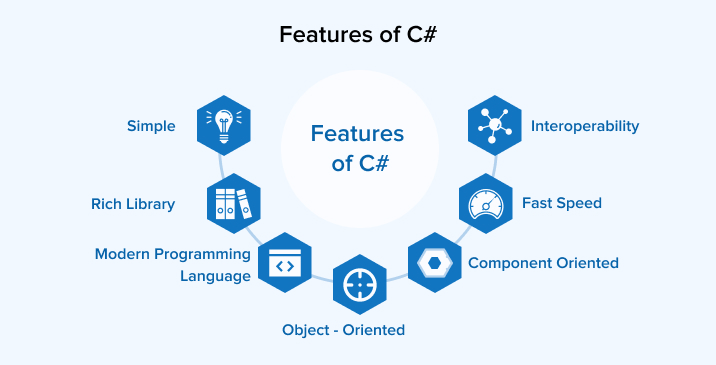
Some of the major features of C# are –
Simple
It is a very simple programming language that comes with a rich set of functions, data types, libraries, etc. In C#, the pointers are missing and manipulation of direct memory is unsafe. Besides this, there is no use of operators like, “::” or “->” in C#.
Rich Library
The C# programming language comes with rich libraries that enable the developers to code very easily and as it has many inbuilt functions, programming with this language is fast and easy.
Modern Programming Language
C# is known as a language that has the capability to mold according to the current trend. And for developers, it is a very easy, simple, and powerful language especially when it comes to developing interoperable, scalable, and robust applications.
Object-Oriented
The C Sharp programming language is also known as object-oriented language as it supports polymorphism, interfaces, data encapsulation, and inheritance. The object-oriented programming concept makes development maintenance easier in C#.
Component-Oriented
C# is both Object Oriented and Component Oriented Programming language. To directly support both the concepts, C# provides language constructs. So, one can create and use software components easily.
Fast Speed
When it comes to creating applications using the C# language, there are many inbuilt functions that can be used by developers to write the code. This is why the code in C# doesn’t show any error while compilation and execution which makes it a faster language.
Interoperability
C# language introduces primary support for windows based applications which means that it enables restricted use of native pointers while developing a program.
2.2 Pros and Cons of C#
Here is a list of the advantages and disadvantages of using C# programming language.
Advantages of C#
- Language-Integrated Query (LINQ)
- C# offers lambda and generics support.
- Properties with getting & setting methods
- Secure extension methods
- Cross-platform support
- Memory management
- Backward compatibility
Disadvantages of C#
- C# is a part of the .NET framework which means that the apps are based on windows.
- It offers a poor GUI.
- Software is proprietary and this means that it requires an upfront purchase.
3. Java vs C#: Key Differences
Before going through the key differences and similarities between Java and C#, Let’s have a look at the chart which proves the popularity of these two languages. This chart by Stack Overflow shows the percentage of the questions users ask about these languages.

Here are the points that show the key differences between Java vs C# languages –
| Parameters | Java | C# |
|---|---|---|
| Ecosystem | Java comes with a huge open-source ecosystem. | C# is used to create software for various Microsoft platforms. |
| Programming Paradigm | Object oriented programming approach | Object-oriented, component-oriented, functional, and strongly typed approach |
| Runtime environment | JAVA runs on JRE (Java Runtime Environment) | C# runs on CLR (Common Language Runtime) |
| Support for Delegates | Java requires the use of an interface to get similar functionality. | C# serves as a method that can be known without knowing the target object. |
| Support for Generics | Java can be implemented with the use of casts and erasures which can be added into bytecode upon compilation. | In C#, the code is integrated into the CLI and it enables the availability of type information at runtime |
| Support for Operator Overloading | Java doesn’t support operator overloading | C# supports operator overloading |
| Support for Pointers | Java doesn’t support pointers. | C# supports pointers in a function of code block when it is marked by the unsafe modifier |
| Arrays | In Java, arrays are a direct specialization of Object. | In C#, arrays are a specialization of the System. |
| Suited For | It is best suited for complex and concurrency projects. | It is best suited for game app development. |
| Platform Dependency | Java is a platform-independent and robust language. | Code C# is a windows specific language. |
| Companies Using It | Companies like Airbnb, Spotify, Instagram, and Netflix use it. | Companies like Codorus, Stack Exchange, Docplanner, and Microsoft use it. |
4. Similarities Between Java and C#
Here are the points that show the key similarities between both Java and C# languages –
- Object-Oriented: Both Java and C# are object-oriented languages and they support concepts like polymorphism, encapsulation, inheritance, and more.
- Syntax: Both of these languages are syntactically similar.
- Intermediate Language Code Generation: Java and C# compilers have the capability to generate an intermediate language code after compilation.
- Dependence on C and C++: C and C++ are the languages that can be called the superset to C# and Java.
- Advance Features: One of the most beneficial advanced features that these languages come with is garbage collection.
- Multiple Inheritance: Both Java and C# support single class inheritance.
Besides these points, one other similarity between these languages is that both Java and C# have made it to the list of top 10 most popular technologies in the survey conducted by Stack Overflow. You can see this in the below image.
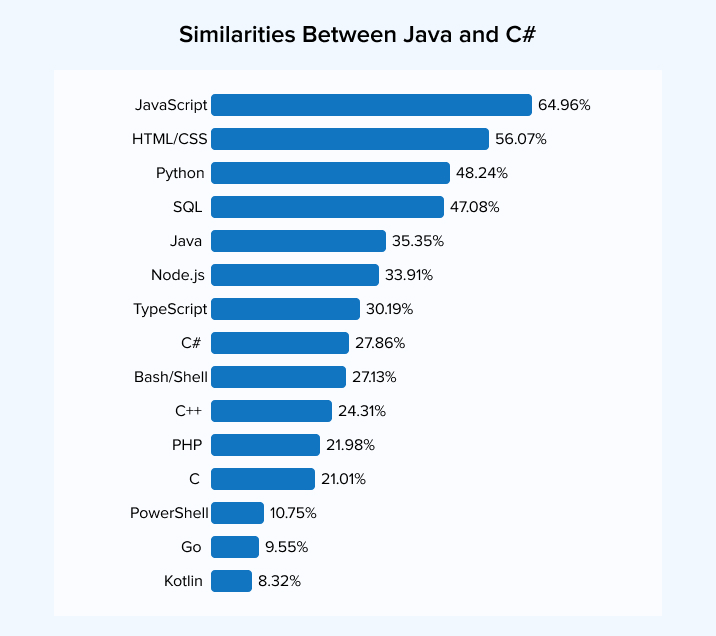
5. When is Java Preferable over C#?
- When the developer wants to take advantage of the extensive codebase and community of the language, Java can be used.
- Java is preferred when the development team wants to create web-based or server or desktop-based apps.
- Java can be the best choice when one needs portability and interoperability more than efficiency.
6. When is C# Preferable over Java?
- C# can be preferred when it comes to developing programs on the .NET platform.
- Developers choose C# as it enables the software to run efficiently and fast.
- It offers a modern quality-of-life feature known as garbage collection.
- When it comes to creating mobile or gaming apps, C# is used.
7. C# and Java Examples
C# language is used by many popular companies and some of them are –
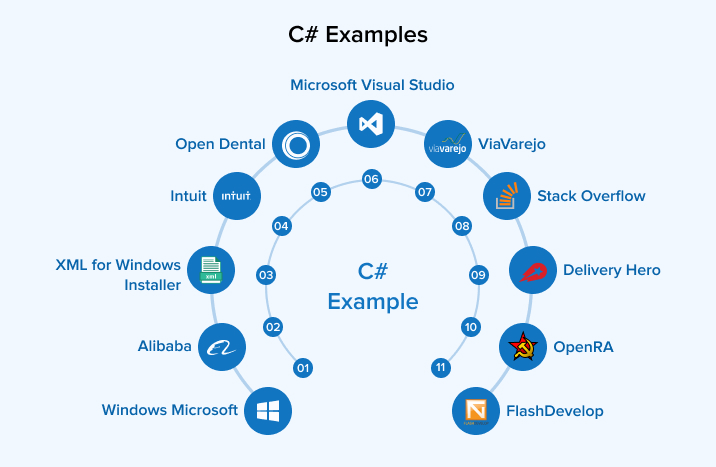
- Windows Microsoft
- Alibaba
- XML for Windows Installer
- Intuit
- Open Dental
- Microsoft Visual Studio
- ViaVarejo
- Stack Overflow
- Delivery Hero
- OpenRA
- FlashDevelop
Java has also been used by some remarkable companies, like –
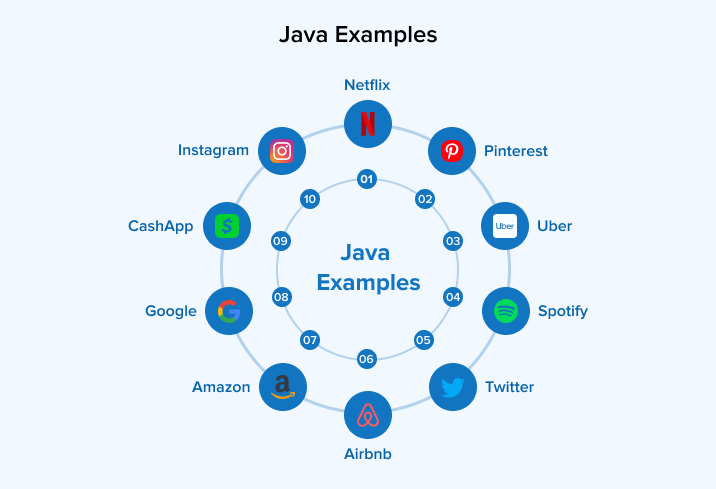
- Netflix
- Uber
- Spotify
- Airbnb
- Amazon
- CashApp
8. Conclusion
This detailed comparison of Java vs C#, we can see that both of these languages are best in their own way, and choosing one of these is a very difficult choice for any software developer. Each of these languages comes with unique aspects and using them can be a win for any business organization or software development company. But which language suits which type of application is completely based on the type of application, the budget of the app, the environments a business owner wants his app to run on, and more. And this decision can be taken by the developers when they get hired for a project as they can easily understand the project requirements and decide which between Java vs C# is the best fit.

Vishal Shah
Vishal Shah has an extensive understanding of multiple application development frameworks and holds an upper hand with newer trends in order to strive and thrive in the dynamic market. He has nurtured his managerial growth in both technical and business aspects and gives his expertise through his blog posts.
Subscribe to our Newsletter
Signup for our newsletter and join 2700+ global business executives and technology experts to receive handpicked industry insights and latest news
Build your Team
Want to Hire Skilled Developers?

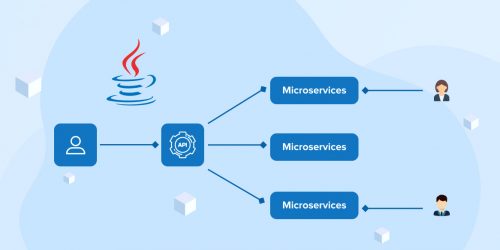
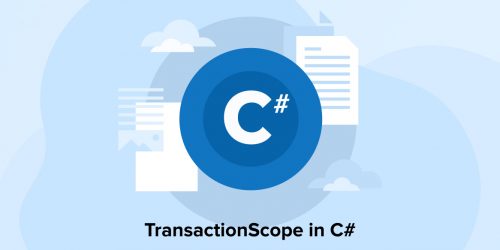


This comprehensive comparison delves into Java versus C#. Having gone through this article, it's evident that each language possesses distinct features. However, determining the most suitable language for a specific application depends entirely on the nature of that application.
Mind blown by your in-depth Java vs. C# breakdown! This comparison laid out both sides beautifully. Everything from A to Z, similarities, quirks, pros and cons - crystal clear. This blog seriously leveled up my language decision making.